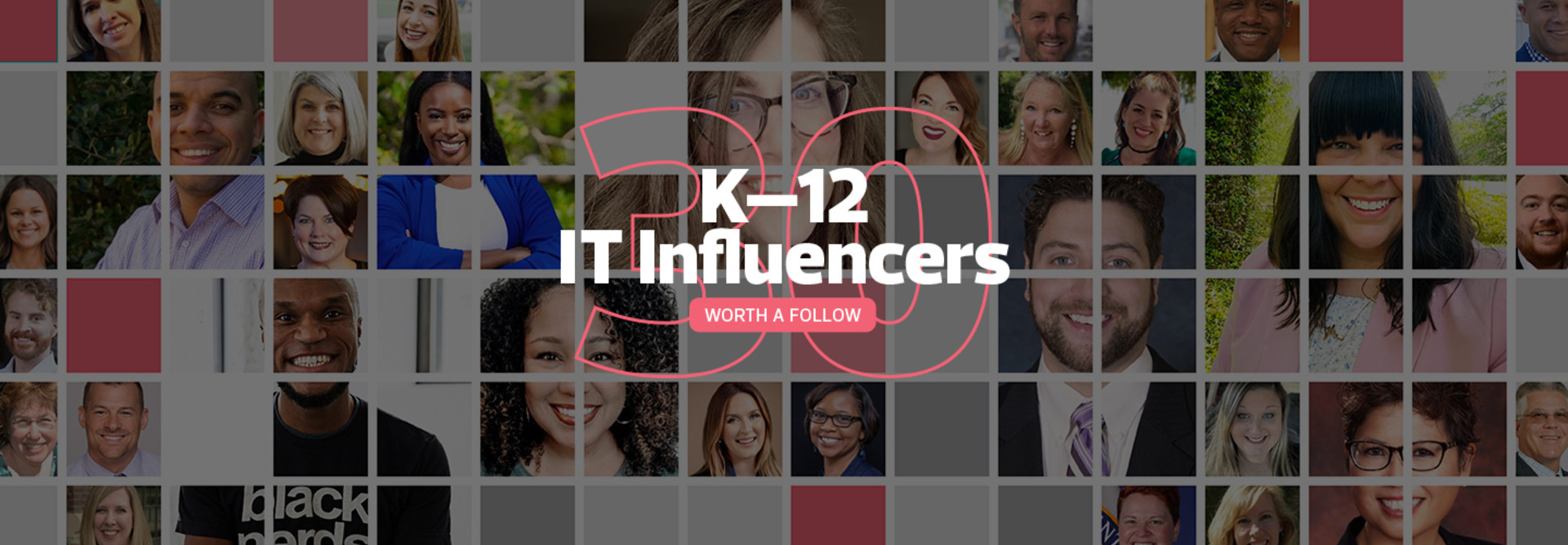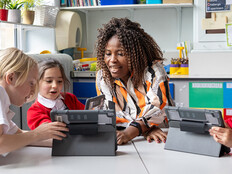30 K–12 IT Influencers to Follow in 2023
Today, education and technology are so closely intertwined it’s hard to remember a world where they didn’t coexist. Over the past three years, school districts quickly adopted and integrated various technologies, from one-to-one device programs and new software to networks that could shoulder the increased demand. None of these innovations would have been possible with the hard work of K–12 IT leaders.
One lesson learned from the rapid introduction of ed tech is that leadership comes in many forms. Sometimes, it’s a district administrator or CTO; at other times, it’s a media specialist or expert tech consultant. These tech-savvy individuals, those stepping up to lead in the uncharted waters of digital transformation, are the K–12 IT influencers EdTech: Focus on K–12 sought for this year’s list.
Although we could have easily put together a list double this size thanks to all the amazing voices in this educational technology space, we narrowed it down to the following 30 influencers. These tech leaders are innovating, asking questions and sharing with their communities. If you’re featured among the 2023 K–12 IT influencers to follow, be sure to share the good news and support your fellow influencers on your own social media profiles or websites.
Click the banner to follow in these influencers' footsteps with resources for the modern classroom.

Akilah Willery, education strategist at CDW, is co-host of the EdTech Coffee Talks podcast, part of the CDW Education Collaborative. On her social channels, she consistently provides great insights on what school districts need and can frequently be found networking with schools local to her in Texas.

Bernard F. Bragen Jr., superintendent of Virginia’s Montgomery County Public Schools, is known for leading innovations in his school districts. With more than 30 years of experience in education, he shares his wisdom as an administrator with his followers.

Bonnie Chelette, educational technology director for the Louisiana Department of Education, is well versed in the latest tech innovations. She’s a co-founder of the Global GEG, which provides Google Workspace for Education tips and resources to educators, primarily putting out new content at the height of remote learning during the pandemic. At ed tech conferences, Chelette speaks on popular topics such as cybersecurity.

An author and Brooklyn, N.Y.-based educator, Cornelius Minor works with community organizations to support equitable literacy reform. He formed The Minor Collective with his wife, Kass, and together they work to drive change in school communities through technology, social media and connection to the people outside classroom walls. His book, We Got This, argues that teachers’ greatest power is listening to students to further equity.

Crystal Uhiren is an artificial intelligence enthusiast and active Arlington (Tenn.) Community Schools employee, giving her followers an accurate picture of life as an instructional tech facilitator. She asks for tech recommendations and shares tips on her social media channels, connecting a community of tech leaders and educators.

Daniel Fitzpatrick is the author of The AI Classroom, a book on artificial intelligence in K–12 education. He also has a newsletter, an online course for educators called the “ChatGPT Survival Kit” and offers professional development workshops and keynotes. Based across the pond in the U.K., Fitzpatrick uses his social channels to reach educators all over the world.

Danny Alston is a video game art and design teacher in New Jersey’s Middletown Township School District and a game design instructor at Johns Hopkins University. He highlights other teachers — as well as students’ work and projects — on his Twitter account.

In addition to writing Demarginalizing Design: Elevating Equity for Real World Problem Solving, a book on inclusive education, Dee Lanier shares equitable learning experiences through his organization, Lanier Learning. He also co-hosts the podcast The Liberated Educator with Ken Shelton and works as an education coach for Samsung.
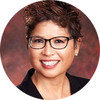
Diane Doersch is CoSN board chair and a technical project director at Digital Promise. The former CTO is known for speaking out about digital equity in K–12 education and professional equity in science, technology, engineering and math careers.

Best known for her work as Green Screen Gal, Erika Sandstrom is a digital learning coach and digital media teacher at the middle school level for Peabody Public Schools in Massachusetts. Through her social media channels, Sandstrom shares ed tech tips in the form of green screen videos, which often feature other influential voices in K–12 IT circles.

Henry Hall, now the CTO and assistant superintendent of technology, has worked for more than 26 years in Richardson Independent School District. The Texas district’s junior high school has been in the spotlight for its custom-built innovative esports space. Hall uses his social platforms to amplify goings-on within his district and at conferences, often celebrating the achievements of his colleagues in both spaces.

Jud Hartman is an instructional technology specialist at the Chippewa Local School District in Ohio. This educational technology professional is a go-to resource for Universal Design for Learning and project-based learning tips. Followers will find thought starters, community engagement and education statistics on his social channels.

Karle Delo works as an instructional coach and technology integrationist at Ovid-Elsie Area Schools in Michigan, where she shares tech tips and resources to K–12 educators. Using her social channels, she brings these tips — on topics such as AI, Google Workspace for Education and more — to an even wider audience. Delo’s followers can find personable video demonstrations of some of the latest tech innovations and updates when they visit her profiles.

Kathi Kersznowski delivers her K–12 tech expertise through multiple media, including a book on Microsoft Education. She is the lead educational technology coach for New Jersey’s Washington Township Public Schools and the owner of Integration Innovation, through which she provides professional development consultation and personalized PD sessions.

Kaylah Holland is the instructional tech director for BreakFree Education, an organization built to improve education in juvenile and criminal justice systems. She is also the founder of Go Teach Be Love, a nonprofit that empowers educators to build sustainable educational environments. Holland stresses the importance of professional development in both roles, bringing PD lessons to educators in her work and on her social channels.

CTO of Thompson School District in Colorado, Kelly Sain supports all of the district’s technology needs, from infrastructure to devices and software. A former member of the InnEdCo board, Sain is currently involved in ISTE and works to bring innovative technology solutions to her schools and followers.
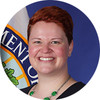
Kristina Ishmael is deputy director of the U.S. Department of Education’s Office of Educational Technology, which is responsible for the National Educational Technology Plan. OET is currently working on a refresh of the plan, set to be released in early 2024. A frequent conference speaker, Ishmael has expertise in digital equity, professional development and policy at the district, state and federal levels.
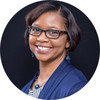
Lakisha Brinson Thomas, included among ISTE’s 20 to Watch in 2022, serves as the instructional technology director at Metro Nashville Public Schools in Tennessee. In addition to overseeing instructional tech and online learning for MNPS’s 150 schools, she also facilitates PD opportunities for educators across the country.

Marialice B.F.X. Curran founded the Digital Citizenship Institute, which creates learning experiences that bridge generations. The institute uses tech and social media to change the way communities engage online. Curran has also held positions in K–12 and higher education, teaching educational technology strategies to future educators in the latter role.
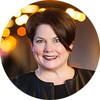
Following her retirement this year as CTO for Wake County Public Schools in North Carolina, Marlo Gaddis continues to bring educational technology and instructional design to K–12 districts as a consultant. Named N.C. Technology Director of the Year in 2022, Gaddis is never far from tech innovations. She is also on the CoSN board of directors and serves as secretary for the organization’s executive board.

Martha Bongiorno’s professional title, media and education technology instructor, encompasses the work she does as a K–12 librarian at Fulton County Schools in Georgia. Bongiorno considers herself a school library activist. In addition to her time spent speaking and presenting at conferences such as ISTELive 23, she also creates and posts original content on her social channels to share guidance and build community.
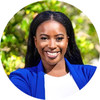
Nadine Ebri runs the Minecraft lab at Duval County Public Schools in Florida, where she works as a specialist with the technology innovation department. This year she received ISTE’s 20 to Watch award, and in 2021 she was a Duval County Public Schools Teacher of the Year finalist. She creates content for Minecraft: Education Edition and shares her experience as a Black woman in STEM.

Not only is PJ Caposey a bestselling author and conference speaker, he is also the superintendent of Meridian Community Unit School District 223 in Illinois. His books on teaching strategies and school leadership reflect his years of experience in education. On his social timeline he shares motivational messages and updates from his district and his own endeavors.

Robbie Barber is a teacher-librarian at DeKalb County School District in Georgia and runs the blog Tickling Tech, where she posts ed tech tips and resources. With a background in electrical engineering, Barber now helps high school students and educators infuse learning with technology.

Sean Arnold works for the New York City Department of Education as the director of school pathways in computer science. He is also a keynote speaker and ed tech consultant who helps K–12 schools facilitate technology adoption. His blog, Brave in the Attempt, focuses on equity and inclusion in the modern classroom.

Stevie Frank, a technology integration specialist at Zionsville Community Schools in Indiana, shares her love for classroom ed tech tools on her social channels and website. This year, she added ISTELive to her resume as a conferences at which she’s presented in person and virtually. One of the sessions she presented this year focused on student-driven podcasts in the classroom — something she is familiar with due to her frequent guest appearances on ed tech podcasts such as My EdTech Life.

An elementary teacher at El Paso Independent School District in Texas, Stormy Daniels is very involved in the educational technology community. Her social channels are full of application tips and templates for other educators to use, as well as inside looks into her experiences as a K–12 educator.

As technology director at Alabama’s Mountain Brook Schools, Suzan Brandt shares goings-on in her school district, including posting about leadership and technology. Her district’s tech department focuses on innovation, equitable access, professional development, and safety and security.

Tricia Fuglestad integrates technology into her elementary visual arts classes at Arlington Heights School District 25 in Illinois. Fuglestad frequently posts on topics such as social-emotional learning, STEAM (science, technology, engineering, art and math) and augmented reality, and plans to release a children’s book, Peter O’Meter, an AR-infused tale that she wrote, illustrated and animated.

Weston Kieschnick is the CEO of Kieschnick & Associates, co-host of the podcast Teaching Keating and a TEDx speaker. Kieschnick has also published three books on innovating in education, and he’s presented on the intersection of technology and pedagogy in the modern classroom.



